|
Hi , |
|
The bioeconomy can only succeed with support from policymakers and regulators. The policy landscape for synthetic biology is ever-evolving, encompassing the production of food, fuel, materials, and medicines, from living organisms. Bioeconomy policy is also essential for managing natural ecosystems, biodiversity conservation, and biosecurity. As the world faces challenges like climate change, diminishing resources, and threats to global health, clear, robust, and rational policy and biosecurity frameworks are essential to establishing sustainable economies. |
 |
|
This newsletter is brought to you by Ginkgo Bioworks. Ginkgo's biosecurity and public health unit, Concentric by Ginkgo, is building global infrastructure for biosecurity to empower governments, communities, and public health leaders to prevent, detect and respond to a wide variety of biological threats.
In September, President Biden signed the Executive Order on Advancing Biotechnology and Biomanufacturing Innovation, setting the government on a bold new course for creating a national biostrategy. And last month, the White House issued a report highlighting the "bold goals" and priorities we must focus on to achieve that vision. Here are just a few "bold goals" the U.S. government thinks we can achieve in the next 20 years:
-
Produce at least 30% of the U.S. chemical demand via sustainable and cost-effective biomanufacturing pathways.
-
90% of plastics are from bio-based recyclable-by-design polymers.
-
Decrease the manufacturing cost of cell-based therapies 10-fold.
|
 |
|
We have compiled a list of everything you need to know about the bioeconomy, policy & biosecurity, and the significant developments in the last months. Continue the discussion at SynBioBeta 2023: The Global Synthetic Biology Conference May 23 - 25, and the track dedicated to this topic. |
-
The CHIPS and Science Act became law last year, and it's riddled with provisions that stand to impact the U.S. bioeconomy. As a result, there’s quite a list of provisions relevant to promoting the U.S. bioeconomy. Some of the substantial ones that jumped off the page are presented here by Mike Fisher, Senior Fellow at the Federation of American Scientists.
-
A $280bn package called CHIPS and Science Act is a win for the semiconductor and synthetic biology industries. The bill includes the Bioeconomy Research and Development Act, which will establish a federal engineering biology research initiative and expand public-private partnerships, education, and training. The legislation also calls for more than doubling the National Science Foundation's budget—now $8.8 billion—over five years. It would also grow the $7.5 billion Office of Science at the Department of Energy by 45%.
-
President Biden also announced last year that US research agencies should make the results of federally funded research free to read as soon as they are published—a boost for the growing open access movement to make scientific research publicly available.
|
 |
|
|
|
|
|
Bioeconomy, Policy & Biosecurity at SynBioBeta: |
|
Here are some of the upcoming sessions: |
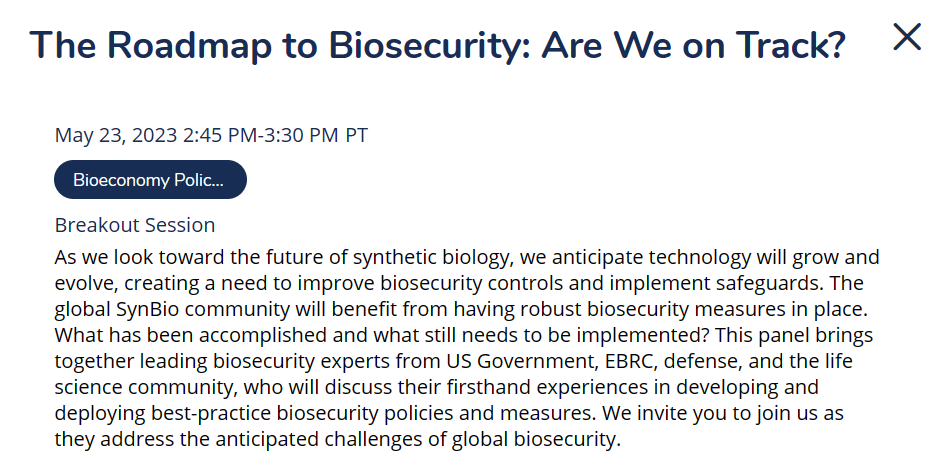 |
 |
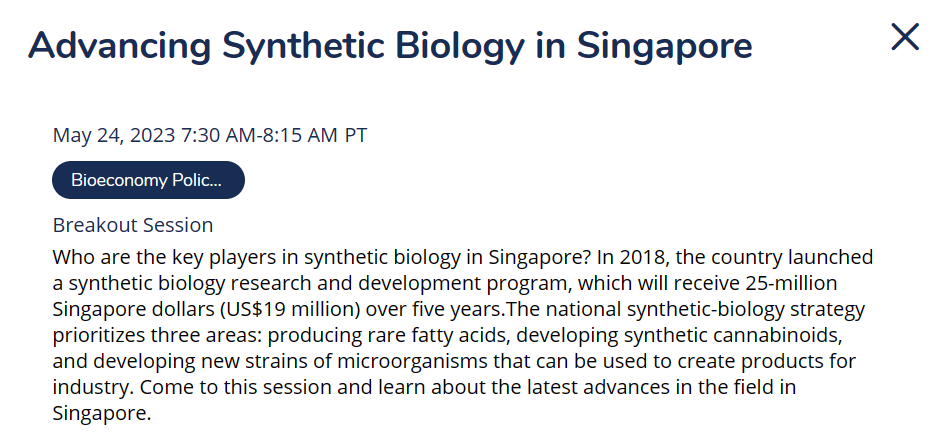 |
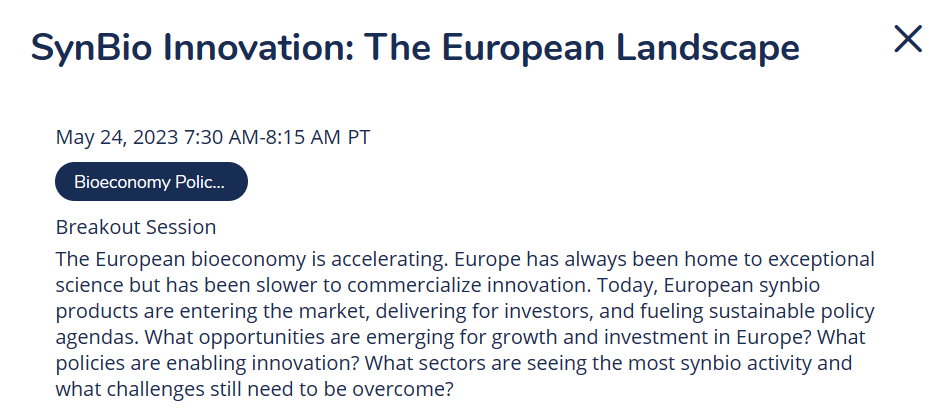 |
 |
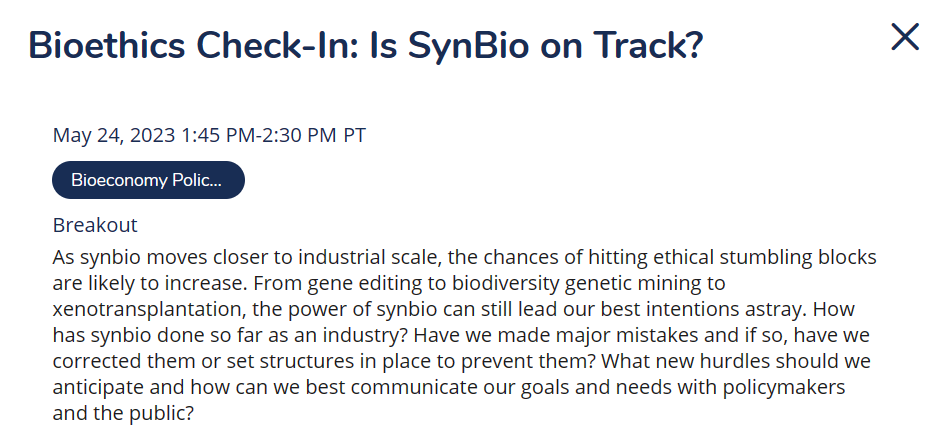 |
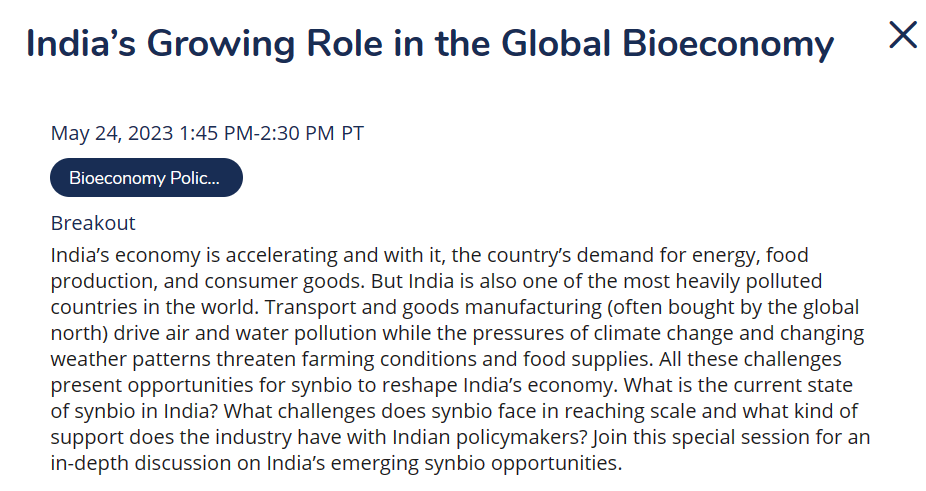 |
 |
 |
 |
 |
 |
|
Related Sponsors |
 |
|
|
|
We hope you enjoyed this Bioeconomy, Policy & Biosecurity wrap-up newsletter, and I hope that you’ll choose to join us in May at SynBioBeta 2023: The Global Synthetic Biology Conference. |
| Register now |
|
|
|
|
|
Regards,
John
---
John Cumbers
Founder, SynBioBeta |
|
|
|
|
SynBioBeta, LLC
3559 Mount Diablo Boulevard #2, Lafayette, CA 94549
info@synbiobeta.com
If you no longer wish to receive our emails, you can unsubscribe here.
Modify Your Email Preferences |
|
|
|
|